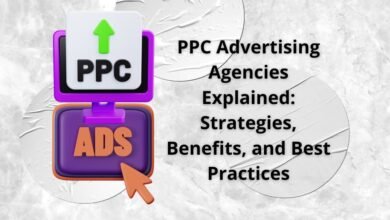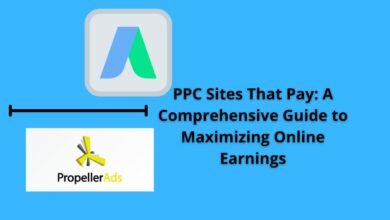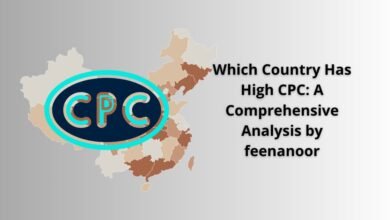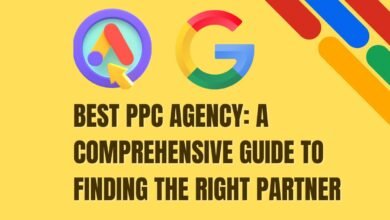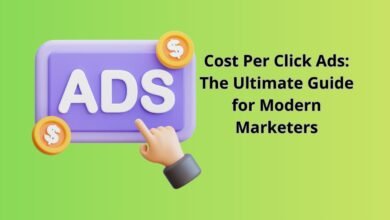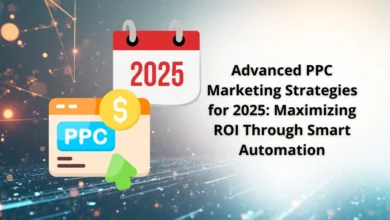PPC Management: A Complete Guide to Mastering Paid Advertising
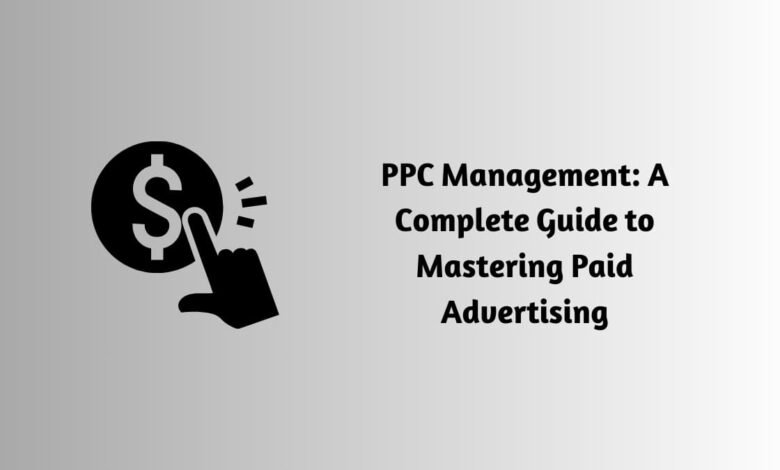
PPC Management is the key to maximizing return on investment in digital advertising. Learn how to plan, optimize, and scale campaigns effectively.
Introduction: Why PPC Management Matters
In today’s hyper-competitive digital marketplace, businesses cannot rely solely on organic traffic to thrive. While SEO builds long-term authority, paid advertising delivers instant visibility. This is where PPC Management comes into play. Effective management of pay-per-click campaigns ensures not only higher click-through rates (CTR) but also measurable conversions at the lowest possible cost.
Think of it this way: launching a PPC campaign without management is like buying a sports car but never learning how to drive it. You may have the engine, but without control, it leads nowhere. Businesses that master PPC Management can outperform competitors, dominate search results, and connect directly with customers when they are ready to buy.
PPC Sites That Pay: A Comprehensive Guide to Maximizing Online Earnings
What Is PPC Management?
At its core, PPC Management refers to the process of planning, executing, and continuously optimizing pay-per-click campaigns across digital platforms. In PPC advertising, businesses pay only when users click on their ads, making it one of the most performance-driven marketing models.
PPC Management is not about simply running ads—it’s about data-driven decision-making, audience targeting, keyword strategy, and ongoing optimization to maximize ROI.
The Core Elements of PPC Management
1. Keyword Research and Strategy
Every successful PPC campaign begins with keyword research. The goal is to identify keywords that align with customer intent while balancing cost-per-click (CPC) and search volume.
- High-intent keywords: Often lead directly to conversions (e.g., “buy Nike Air Max online”).
- Long-tail keywords: Less competitive but highly targeted (e.g., “best budget laptops under $500”).
👉 Example: A small travel agency ran Google Ads targeting broad terms like “vacations.” Their CPC was extremely high, and conversions were almost nonexistent. After shifting to long-tail keywords like “family vacation packages in Bali,” their CPC dropped by 40% while conversions increased by 120%.
This demonstrates why keyword strategy is a pillar of PPC Management.
2. Crafting Effective Ad Copy
Ad copy is the voice of your campaign. Strong, compelling messaging increases CTR and improves Quality Score on platforms like Google Ads.
Tips for effective ad copy:
- Use action-driven headlines.
- Highlight unique selling points (USP).
- Include urgency or scarcity triggers (e.g., “Limited Offer,” “Book Now”).
- Ensure ad copy matches keyword intent.
👉 Example: Airbnb ran A/B tests where one ad said “Book Unique Stays” while another said “Vacation Homes Near You.” The second ad outperformed by 35% because it matched user intent more closely.
In PPC Management, continuous testing and refinement of ad copy separates winning campaigns from wasted ones.
3. Campaign Structuring and Bidding
Campaign structure impacts efficiency. Ads should be grouped by themes, products, or audience segments. A poorly structured campaign risks wasting money on irrelevant clicks.
There are two main bidding approaches:
- Manual bidding: Offers granular control but requires hands-on management.
- Automated bidding: Uses algorithms to optimize for conversions or clicks.
👉 Example: A fashion retailer used automated bidding with a “maximize conversions” strategy. While traffic increased, the cost per conversion became unsustainable. After switching to manual bidding with tighter audience segmentation, the retailer cut acquisition costs by 25%.
This balance between automation and human oversight defines expert PPC Management.
4. Landing Page Optimization
Even the most persuasive ad will fail if the landing page disappoints. PPC Management extends beyond the ad itself—it ensures the entire customer journey is seamless.
Key landing page factors:
- Message consistency: The ad promise should match the landing page headline.
- Fast loading speed: Especially on mobile devices.
- Clear call-to-action (CTA): “Sign Up,” “Buy Now,” or “Get a Quote.”
- Trust signals: Customer reviews, certifications, and secure payment icons.
👉 Example: A SaaS company advertised “Free 14-Day Trial” but sent users to a landing page requiring credit card details upfront. This mismatch caused a 70% bounce rate. Once the page aligned with the ad promise (true free trial, no card required), conversions tripled.
This shows how crucial landing page optimization is in PPC Management.
5. Performance Tracking and Analytics
Without tracking, PPC campaigns are blind spending. Effective PPC Management uses tools like Google Analytics, Facebook Ads Manager, and heatmaps to track performance.
Essential metrics:
- CTR (Click-Through Rate).
- CPC (Cost per Click).
- Conversion Rate (CR).
- ROAS (Return on Ad Spend).
👉 Example: A fitness brand noticed high CTR but low conversions. Analysis revealed that most traffic came from mobile devices, but their checkout page wasn’t mobile-friendly. After redesigning for mobile, conversions increased by 85%.
Analytics isn’t just about numbers—it’s about uncovering stories behind data.
6. Continuous Optimization
PPC campaigns aren’t “set and forget.” They need constant fine-tuning:
- Adding new keywords.
- Adjusting bids.
- Pausing underperforming ads.
- Refreshing creatives to avoid ad fatigue.
👉 Example: Coca-Cola’s campaigns regularly rotate ad creatives, even for the same product. This prevents “banner blindness,” where audiences stop noticing ads they’ve seen repeatedly.
Sustained PPC Management is about evolution, not revolution.
PPC Management Across Different Platforms
Google Ads
Best for high-intent searches. Success depends on keyword alignment, ad quality, and landing page optimization.
Facebook & Instagram Ads
Excellent for interest and demographic targeting. Visual creativity and storytelling play a larger role here.
LinkedIn Ads
Strong for B2B campaigns. Targeting by job title, industry, and company size is powerful but expensive, making expert PPC Management essential.
TikTok Ads
Relies on short-form, engaging content. Campaigns here succeed when creativity matches the platform’s culture.
Success Stories vs. Failures in PPC Management
✅ Success Story: Dollar Shave Club
Their witty video ads combined with smart PPC targeting disrupted the shaving industry. They focused on humorous, direct messaging and precise targeting, turning a small startup into a billion-dollar acquisition by Unilever.
❌ Failure Story: JCPenney’s Paid Ads
They once ran aggressive PPC campaigns without keyword oversight, bidding on irrelevant terms. Despite massive ad spend, most clicks came from users with no purchase intent, leading to wasted millions. Poor PPC Management was the downfall.
These examples show how strategy and oversight can mean the difference between exponential growth and financial loss.
The Human Side of PPC Management
Beyond algorithms and numbers, PPC Management is about people. A skilled PPC manager understands consumer psychology, crafts stories, and anticipates shifts in behavior.
Automation helps, but the human touch provides creativity, empathy, and adaptability—qualities machines cannot replicate. Successful PPC campaigns blend data with emotional intelligence.
Conclusion: The Power of Effective PPC Management
PPC advertising can either drain budgets or skyrocket growth—it all depends on management. When executed strategically, PPC Management unlocks massive opportunities for businesses of all sizes, offering measurable results, scalable growth, and a competitive edge.
Companies that invest in expert PPC Management don’t just buy clicks—they build long-term customer relationships, ensuring sustainable success in the digital age.
Frequently Asked Questions (FAQ)
1. What is PPC Management?
It’s the process of planning, running, and optimizing pay-per-click campaigns to achieve maximum ROI.
2. Why is PPC Management important?
It prevents wasted budget, improves targeting, and drives measurable results.
3. Which platforms are best for PPC campaigns?
Google Ads, Facebook, Instagram, LinkedIn, and TikTok, depending on the business model.
4. Can PPC campaigns fail?
Yes, poor targeting, weak ad copy, or irrelevant landing pages often lead to wasted money.
5. How often should PPC campaigns be optimized?
Weekly reviews are essential, with daily monitoring for high-budget campaigns.
Discover more from Feenanoor
Subscribe to get the latest posts sent to your email.






